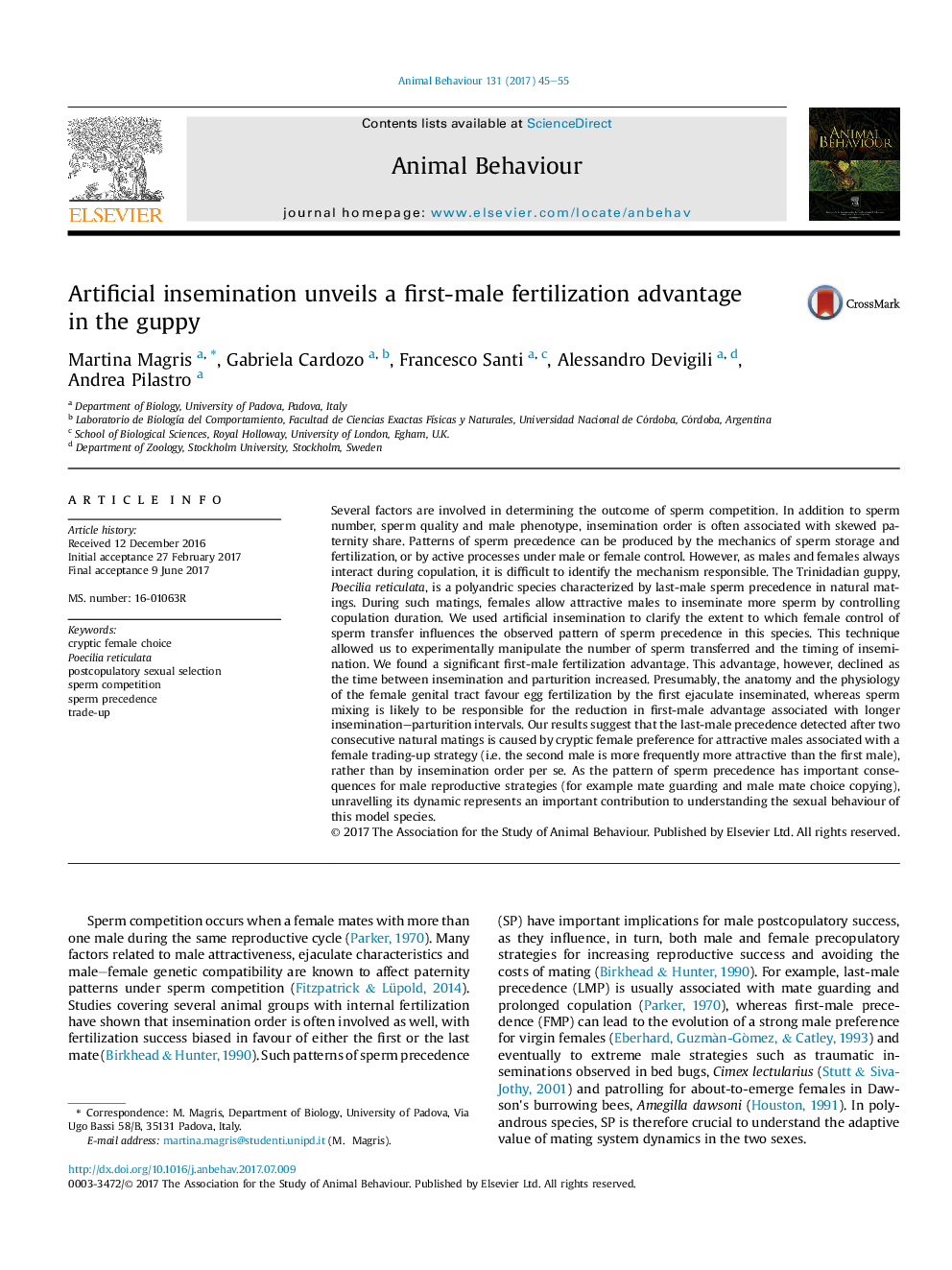ترجمه فارسی عنوان مقاله
تلقیح مصنوعی یک مزیت اول باروری را در گپپیپی نشان می دهد
عنوان انگلیسی
Artificial insemination unveils a first-male fertilization advantage in the guppy
| کد مقاله | سال انتشار | تعداد صفحات مقاله انگلیسی |
|---|---|---|
| 130245 | 2017 | 11 صفحه PDF |
منبع

Publisher : Elsevier - Science Direct (الزویر - ساینس دایرکت)
Journal : Animal Behaviour, Volume 131, September 2017, Pages 45-55

